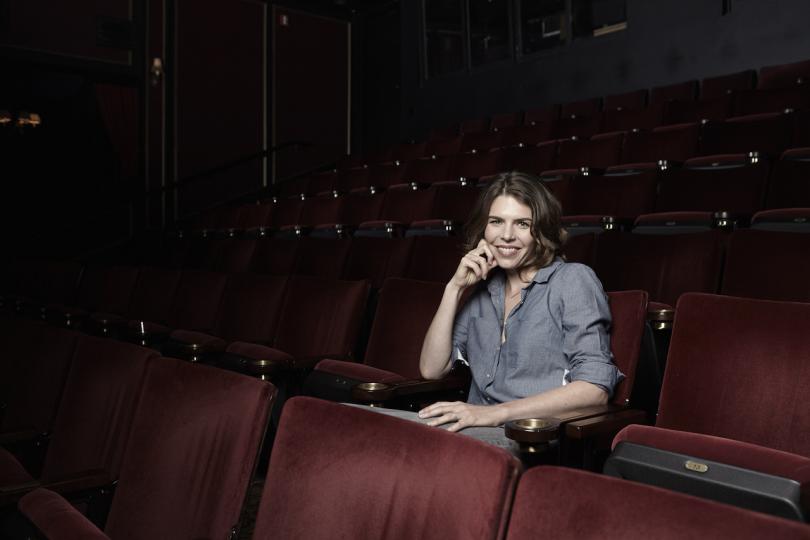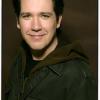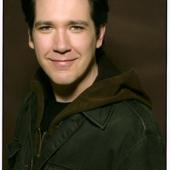Playlist Profile: Sarah Rasmussen

Think of this as the last of a series. Sarah Rasmussen is part of the Artistic Director Class of 2014-15, the one that includes, Joe Haj and Sarah Bellamy and Randy Reyes. If there is a new wave running through our theater town, Sarah is squarely in it. Here she talks about the qualities that make the Jungle Theater unique in the local landscape and how her experiences in new play development and inclusivity will effect the Jungle’s legacy moving forward. And how chocolate covered potato chips can change the way you make theater.
You recently came from a position at the University of Texas. What led you to take that job when you did, and how would you characterize the difference between the academic world and the professional?
I think what drew me to the position and what ultimately led me here was that I like being part of a larger community. I like collaborating. It comes from the same impulse, teaching and directing. Directing can be kind of a lone wolf thing and I really value the conversations that come out of being part of that larger community. It makes ones richer and allows one to see from different perspectives.
And the UT job was great. I was in no way actively looking to leave it, but I got an invite to throw my name in the hat for this, and I felt like of all the theaters in the country, the Jungle’s a really special place to me. I wanted to be part of the conversation about what I love about it and what I hope to see continue here.
The UT job was great because it was half teaching and I also got to direct around the country. But the interest in both jobs stems from wanting a home. I freelanced for a long time out of grad school and it was a great adventure. I’ll always want a part of my life to be that kind of travel and testing myself out in new places with new collaborators in new spaces. Ultimately, though, I like the idea of continuity in who I’m talking to.
What does your ideal rehearsal room look like? How does it run?
I think about this a lot, because ideals of inclusion are very important to me. We’re doing a season of plays where there are multiple perspectives represented in the stories and multiple perspectives represented onstage. I think so often the conversation ends with, What’s your season? Or, Who’s cast in it? Not that that’s not important, but that, to me, is just baseline basic. It’s 2015. Our seasons should be inclusive. Then the real art making and the real joy comes from, what does that mean to a rehearsal room, what does it mean to have different perspectives truly invited into the conversation.
Something I think a lot about as a director is how can I facilitate what the larger questions are that this piece might be asking, what collectively are we asking by doing this play right now in this place. Then allowing the other voices in the space to bring themselves to those questions. In a way, I see my job as asking those questions and then seeing what artists can bring to the table. I think that a piece of art is always stronger when it feels owned by the collaborators. I’m a big admirer of company created work, devised work, because when it’s good it is so collectively owned. But I’m also really hardwired for narrative. So a big question I wrestle with is, How do we have that collective spirit and bring it to bear on a work with that narrative arc in it? That, to me, is an endlessly rich and engaging process. And I think it plays into everything, from how do we structure our rehearsal and how long is it and who’s in the room and all of that.
Also a big hallmark of my rehearsal room is snacks. I always have a snack table. It started at the New Works Lab at OSF [Oregon Shakespeare Festival]. We fully invested in our snack table. It was a part of our budget. Not lavishly, but snacks were a part of the budget. There was a thought that no one does good work when they have low blood sugar, so snacks were important. And people would donate snacks. It’s become this thing in all of my rooms; we have snacks. There’s always this beautiful thing that happens where the great conversations always happen on break, when you’re just hanging around. Like, Who brought these chocolate covered potato chips? But then you’re like, Hey, so that moment in the play…
What haven’t you done yet that you really want to do?
I’m really drawn to new adaptation and working with playwrights on them. There’s so much to love about a classical canon of work, but, especially as a female director, I have some questions about what’s our way into that, why this story right now, whose lens are we telling it through?
I’m pretty, pretty obsessed with Hamilton right now, because I think it so beautifully articulates the idea of telling a story about then through the lens of now. And I think when you’re looking at classic work, whether it’s an existing play or a novel that’s being adapted, I think that the actual process of adaptation – what’s that frame that allows us to have a really inclusive cast that feels integral to the work and not just some sort of added on thing. I’m really intrigued by working with playwrights from the ground up on adaptation. And I think that gets at that sweet spot between devised and narrative work.
Does this relate in any way to the production of Two Gentlemen of Verona you’re opening the Jungle season with, that features an all-female cast?
What’s unlocked the play for me is that an all female cast allow for multiple readings of it. Shakespeare did it with a same gender cast, obviously. It was written for that same gender cast, so something about the all female cast pays homage to that and works in a photonegative way on what that would have been. So there’s something both sincere and also subversive about it.
It’s a play that’s very thorny when it comes to the relationships between men and women. I don’t think it’s funny to watch men make fun of women in 2015. Watching women playing men who are not behaving at their best allows for a layer of perspective and commentary on it, which is exciting. I think in the late 1500’s Shakespeare was writing a play about friendship, one that was sorely tested, and ultimately it explores the nature, limits and boundaries of forgiveness. So seeing it through a female lens, something about our modern relationship to female friendship, I think allows us to get closer to the heart of what Shakespeare was doing.
The character of the Jungle has evolved over the years but has always had a strong design aesthetic at its core. How do you respond to that or see yourself fitting in to that history?
I love that about this theater and it’s so intrinsic to this place that it took me a while to realize what it was that I love so much about this theater. When you look back at the 25 years of plays, it’s wildly eclectic: Bain would unearth those plays you thought you knew and then do them so beautifully, but then he world premiered a lot of Craig Wright’s work, musicals, new stuff, all of it. But when I look at, What is the thru line for the Jungle?, it really is design. It’s designer as storyteller and the particular intimacy of this space. That conversation between designer and audience is thrilling to me.
I fell in love with theater through Shakespeare. I was an English major and I thought theater is all about the words. It took me a while to realize that I love language that is essentially poetry and what poetry does is hold space for multiple meanings and for image. Sarah Ruhl is one of my favorites because there’s air on the page.
That’s what’s so thrilling about this space: it’s so rare for a theater to lead with design. I think it’s really exciting to ask in this day and age, What does it mean to lead with design? What does it mean to process and what does it mean to the future of this theater? It puts the Jungle in a unique place and I’m excited to continue that legacy of excellence in design and also see how we let that lead us into new territory.
What was your experience like at the Jungle when you were a guest director?
I loved my experience working here. I loved In the Next Room, and part of it was that Bain really trusts artists. Everything about the way this place was set up, because he was an actor and a designer, he made it a great place to have an artistic process. He designed the set for the play, and, weird fun fact, I think I was the only guest director he designed for. So, that could’ve gone either way! It ended up being great, and what I loved about it was that we were just so Zen and chill about it all.
He’s such a wise and mystical guy. He had great intuition and sensitivity, and he allowed other people to have an intuitive and circuitous process. It’s something I was very aware of, because I think as theaters get larger they get more cookie cutter and institutionalized. Some of that can be great and some of that can really run counter to the way the artistic mind works. It was one of the highlights of my career, and I want to recreate that for other people who come to work here.
What kinds of artists do you want to bring into the Jungle and what kinds of work do you find yourself drawn to?
We talked about design as being a strong overall value for the Jungle, but I would also hope our season would reflect a really prismatic take on that. You can have incredible experiences with designs that are extremely realistic and also with designs that are very abstracted and unlike anything you’ve ever seen. In terms of who I’d want to bring in, I’m attracted to inquisitive, curious artists that also have a real sense of rigor toward their own process and feel very grounded in their aesthetic, whatever that may be. So artists that are a little obsessive about nuance and detail and subtlety.
How do you see that sense of rigor living side by side with something as loose as intuition?
I think we can be rigorous about our intuition! Rigorous about holding a space for saying I don’t know! Rigorous to me doesn’t mean, I have all the answers. I think it’s a rigor about knowing what the questions are and being relentless about the pursuit of those questions in deep and profound ways. Because, again, I have no interest in theater that just shows you how smart someone is or tells you what to think. I don’t want one possible outcome for an audience, I want something that feels very specific and leaves space for the audience to bring themselves to the story. So I’ll be looking for plays that allow for that.
If you could imagine your life in 10 years, what do you think it might look like?
Well, I just got here, Paul!
I’m just excited to be in this moment of Twin Cities theater. I think the Cities have had an incredible legacy and are almost unique in the country that way. So I’m just excited and honored to be part of what I think can be a renaissance in this ecosystem and be in conversation with that.
I think it’s an incredible place in terms of how different theaters are and how supportive they also are. I’m also interested in the ways the Jungle can become part of a larger national conversation about the way we’re making work, what we value. We’ll produce both classics and new work here, but when we do new work, I love being with it from the ground up. In my years of new work development, I’ve found that design often isn’t a part of the conversation from the beginning. So I’m curious to see what happens when you bring designers in very early on and engage design as a piece of new work development. That’s a kind of uncharted territory that I’m excited to engage in more.
Why do you direct theater?
That’s a good question that people don’t often ask.
I think I direct theater to be in conversation with all things larger than myself, which includes getting to be in conversation with dear, soulmate collaborators as well as strangers every night. And with stories and questions that feel very close to me and also ones that feel very far away and profound and mystical.




